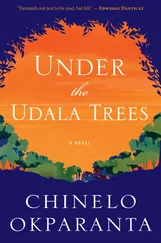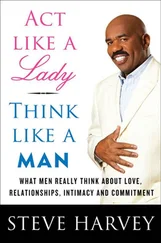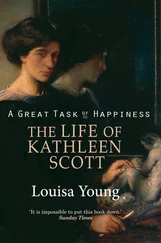After class, I’m packing up my notes, stuffing my Bible into my bag, when I hear her.
‘Excuse me,’ she says. ‘I’m Grace.’
She asks me when my office hours are. I tell her. Thursday mornings, 9 a.m. to 12 noon. She nods. I smile. She doesn’t smile back. She says, ‘I’d like to come in and talk to you about the Bible.’
‘Sure,’ I say. No surprise there. That’s all they’re coming in to talk to me about this semester.
Before she turns around, I notice the seriousness of her face. There is something tragic and vulnerable about her look. I think how such seriousness should be accompanied by a fine set of wrinkles across the forehead, or around the eyes and mouth. But she is young.
She turns to leave, and I notice the way her braids hang down past her shoulders. Something about the way they move as she walks makes me want to reach out and touch them, but I remain where I am and watch her walk out of the room. And I think that there couldn’t be a more fitting name for her.
On Thursday, I’m sitting in my office with my door cracked open, flipping through my stack of mail, when she knocks on the door. I invite her in, and she shuts the door behind her. They sometimes do, when what they have to talk to me about is personal.
I take in her face again — that startling combination of youth and old age. Her clothes are even an extension of that paradox: a white dress shirt, buttoned almost to the very top, prudishly, though I can see the outline of her bra from the white, diaphanous cotton. She has tucked the bottom of the blouse into the waistline of her greyish skirt. On her feet, she wears a pair of simple leather slippers. The only jewellery she wears is a pair of pearl earrings. A very neat presentation, which makes me aware of my own not-so-tidy look. I tug the hem of my untucked shirt, as if tugging will straighten out the wrinkles on it. I fuss with my earrings, and I’m grateful that I even remembered them today. I run my fingers through my hair and hope that I catch and put back into place any stray hairs. I cross my legs under the table and ask her to take a seat.
She is holding her Bible, a small King James with a maroon cover, and all over the inside are pink and yellow Post-it notes, as if she’s been doing some very serious research.
She tells me that she only has a few questions. That they are probably silly questions, but that she would like to see what I think, since I’m the only Bible researcher she knows from a strictly academic background. I’ll probably give her a different take on things than she’s used to getting, she says. I notice that she speaks with a bit of an accent, barely perceptible, just enough that I know she’s probably from somewhere as unique as her looks. I nod.
She quotes me 2 Timothy: ‘All scripture is given inspiration by God, and is profitable for doctrine, for reproof, for correction, for instruction in righteousness.’ She asks me, how exactly do we know that God has inspired the Bible? Because the Bible has caused quite a bit of destruction in the world, she says. How do we really know that God even approves of some of the things in the Bible?
I smile and tell her, ‘Sorry, I’m only dealing with the Old Testament this semester. Timothy is the New Testament.’ I start to laugh, because it’s meant to be a joke, but her face is thoughtful and disappointed, so I clear my throat, and I apologize for the joke.
I tell her that religion is all about faith. And one’s faith is a very personal thing.
She tells me that there are things in the Bible that could not possibly be from God, contradictions like the whole idea of God being a god of peace, but also a god of war. ‘Which one is it?’ she asks. And what about love your neighbour as yourself, and yet God forbids the cripples from approaching his altar? What kind of God bans the very creatures he created from coming to him just because of imperfections out of their control?
I tell her that she needs to keep in mind that the Bible was written under a certain cultural context. It is inspired by God in many ways, but it was still written by humans, with human biases, all based on the existing cultural norms of the time.
She nods and says, ‘So if humans are making their own rules, and writing the rules down in the Bible, where exactly does the Godly inspiration come into play?’
‘Well,’ I say, ‘God inspired them to set down the rules in the first place. And when you look at all the ancient books in the world, none have lasted as long and have had as much influence as the Bible. That in itself is an attestation to some kind of divine inspiration, I think.’
‘I suppose,’ she says. ‘But then how do we know what rules are God’s and what rules are man’s? I need to know,’ she says.
‘Give an example,’ I say. ‘Are you worried about any particular rule?’
‘Like divorce,’ she says. ‘Is it adultery to divorce and remarry, or is it permissible? And shouldn’t it at least depend on the specific circumstance? What about in the case of an abusive husband? Must the woman stay?’
I hesitate a bit. I wonder if she’s contemplating divorce, or if she’s just picking out an example. Then I think of my own divorce, nearly fifteen years ago now. I remember the loneliness of it all, the disappointment in failing at something as important as marriage. ‘Marriage is a sacred union,’ I say, even as I’m reminiscing about my own marriage. ‘When something happens that makes the union no longer sacred, I believe that is grounds enough for divorce.’
‘But is the Bible okay with that?’ she asks. ‘Is God okay with that?’
‘I don’t know,’ I say. ‘It’s difficult to know.’
We stay quiet for a while. Then I look up at her. There is a trail of tears coming down one side of her face. The other side is still winning the battle, resisting the tears.
‘I’m sorry my class is upsetting you this much,’ I say.
‘No,’ she says. ‘It’s not your class.’ She wipes her tears away. ‘I’m sorry about all this crying,’ she says.
‘Don’t be sorry,’ I say.
She looks up at me, then she looks down at her Bible, flips it open. ‘Thou shall not lie with mankind as with womankind: it is an abomination.’ She pauses. ‘If a man also lie with mankind, as he lieth with a woman, both of them have committed an abomination: they shall surely be put to death.’
I’m intrigued by the verses she reads. All of a sudden the conversation is taking a different turn. I remain quiet and simply listen to see where it’ll go.
‘Does this also apply to females?’ she asks. ‘Is it also an abomination for women to lie with women?’
Aha , I think. ‘It’s a tricky one,’ I say. ‘Try not to take it all so literally. There are things in the Bible that should not be taken literally.’
‘I don’t understand,’ she says.
‘Like the word “abomination”,’ I say. ‘It’s hard to even know what that meant back then. Meanings change over time. It’s hard to know.’
She looks down at her Bible, and I know that she’s seriously considering everything that I’ve said. She says, ‘It’s hard to know right from wrong, especially when some things feel right, and yet there are so many people telling you how wrong they are.’
I nod. Usually I’m listening to questions that don’t have to do with anything personal. Just demonstrations of intellect and scholarship. I want to hug her and tell her that one day she’ll figure it out for herself. But I’m not so sure of that, and so I don’t move. Instead I say, ‘The greatest commandments, according to Jesus, are, first, love the Lord your God with all your heart and soul and mind. And second, love your neighbour as yourself.’
She looks up at me, and I smile at her. She smiles back. On her way out she tells me thank you for the talk.
Читать дальше












